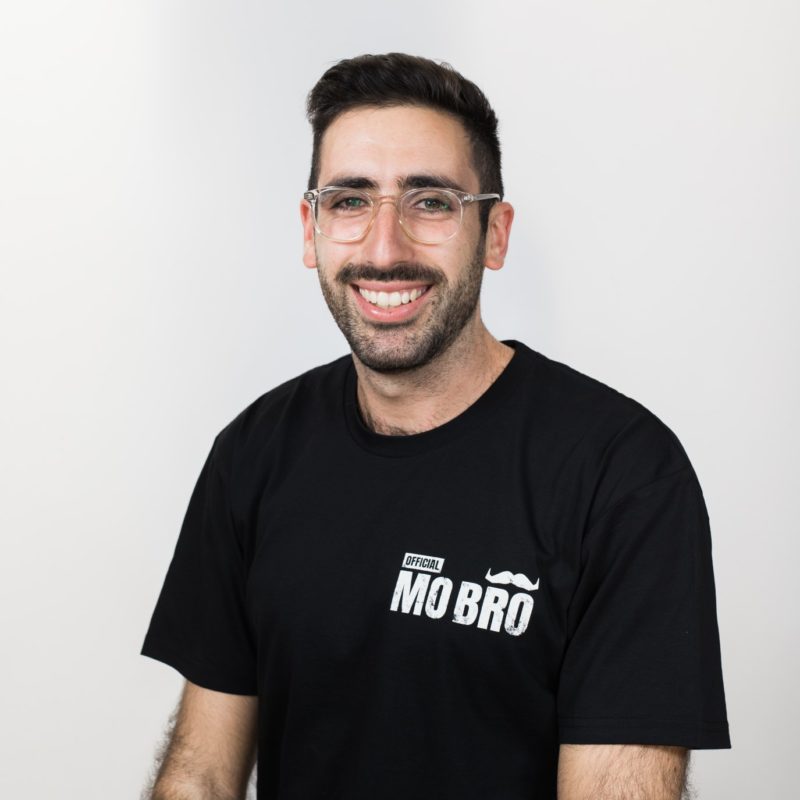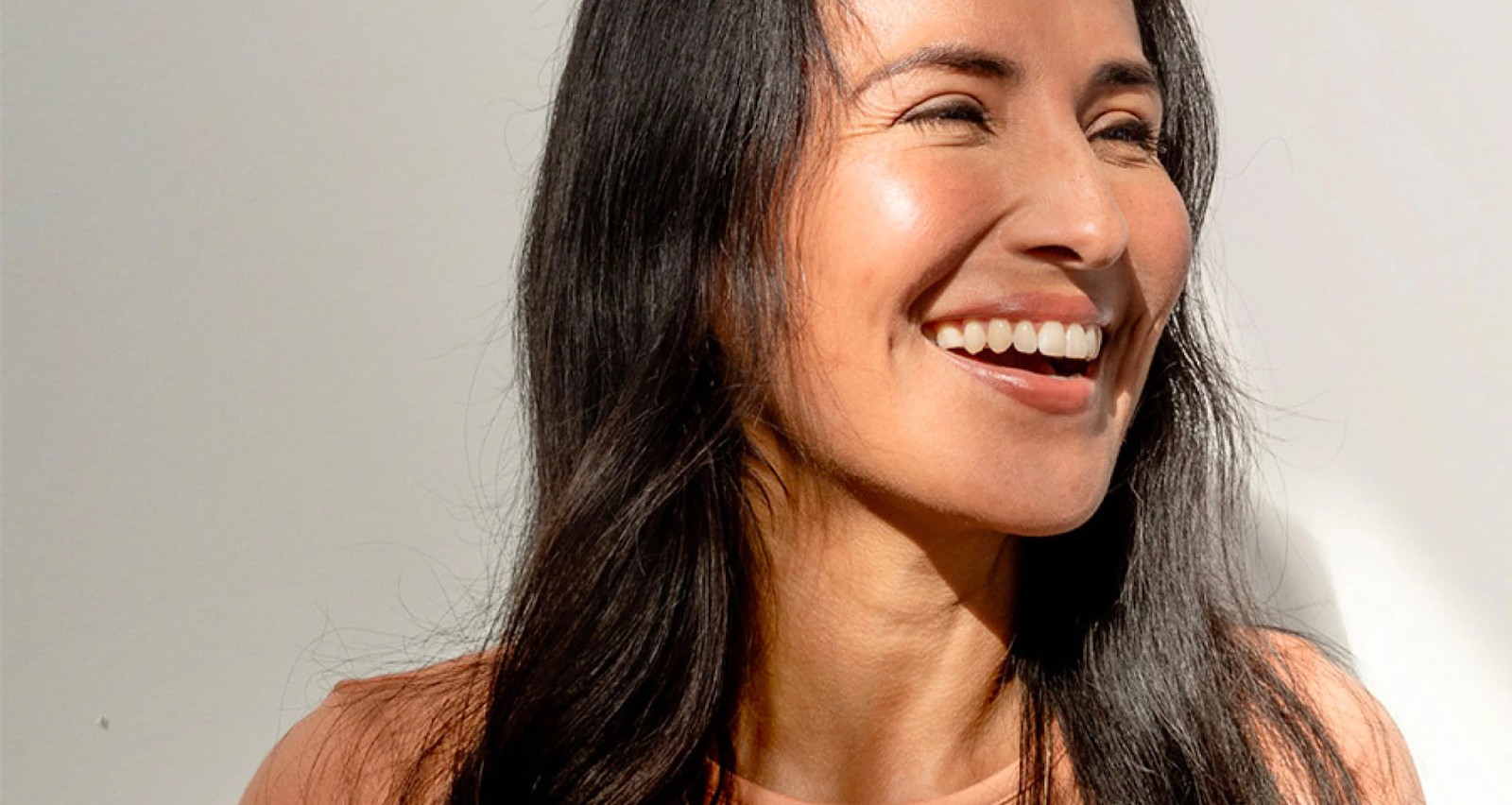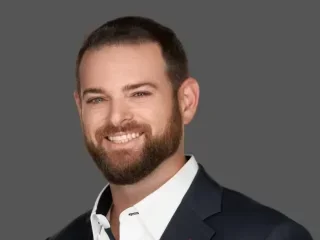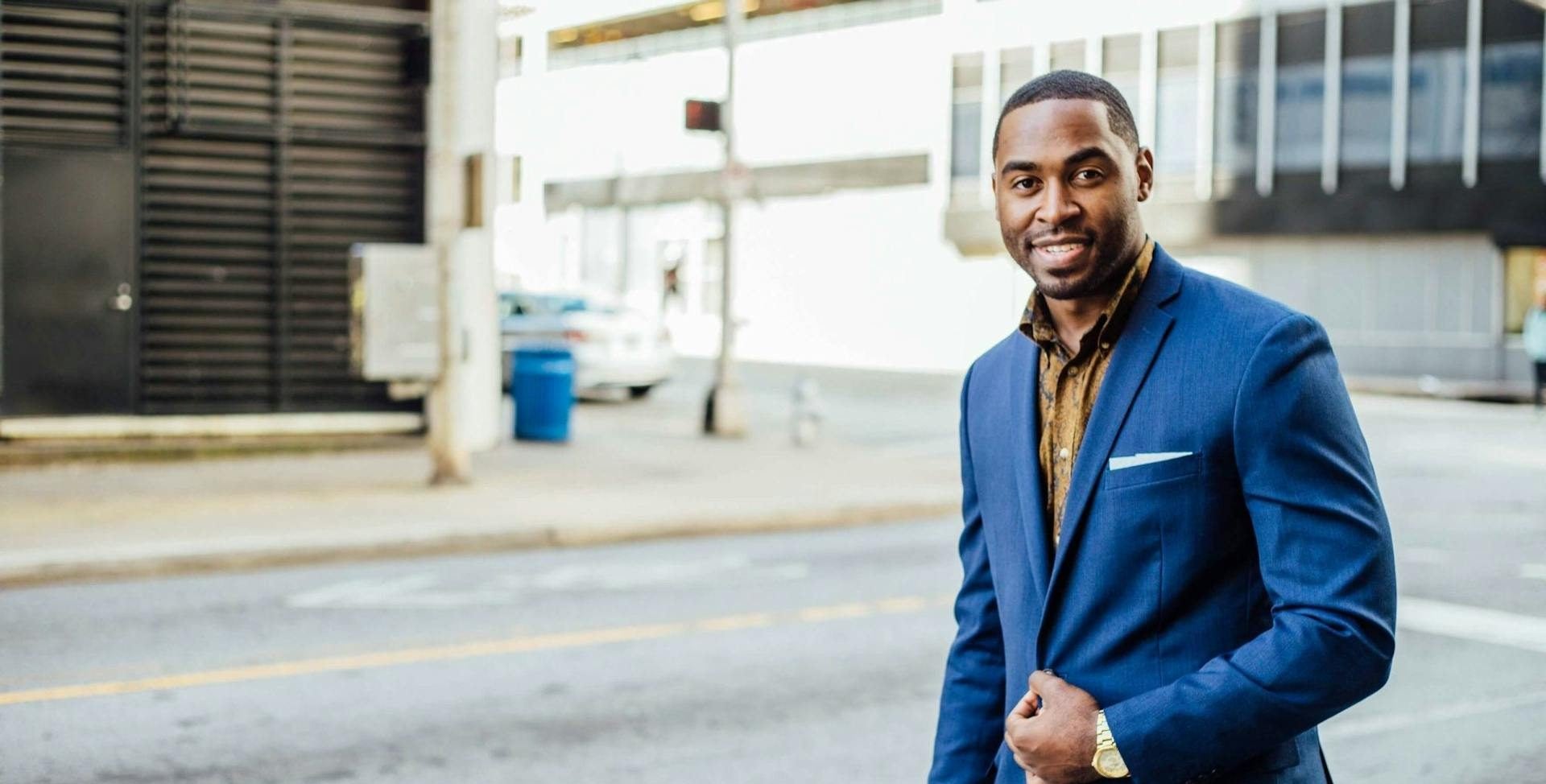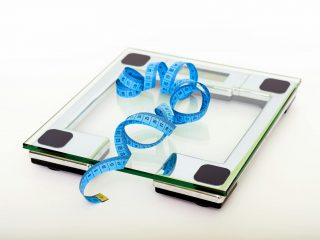The COVID-19 pandemic and physical distancing means that many people cannot rely on their traditional support systems and coping mechanisms to get through the crisis. This can take a huge toll on mental health. Prior to COVID-19, Movember released stats that showed over half of Canadian men feel society expects them to be ‘emotionally strong’, while 50% of those men between 18-34 admit to avoiding speaking about their programs for fear of being seen as less of a man. Shockingly, 3 out of 4 Canadian suicides are by men.
These statistics are scary and we wanted to learn more. We recently had the opportunity to speak with Dr Zac Seidler, Global Director of Mental Health Training at Movember. Seidler, based in Australia, has devoted his career to reducing male suicide rates and researching men’s mental health. He went into psychology because he loves stories, delving into personalities, finding potential in people and motivating them to reach it. He feels privileged to have many at risk and vulnerable men opening up to him on a day to day basis.
How do you define masculinity?
Regardless of who you speak to, you will get really different responses. The diversity is out of control which shows that any attempt to put your finger on one definition means that you are purposely leaving people out. The way that we typically define masculinity is through traditional, dominant lenses. This implies stoicism and silence, self-reliance, all of the typical gentlemanly type of approaches of masculinity. I think that is restrictive and I also think, and the research shows that approach is dying out.
I’ve done some research with millennials in Canada and it shows that we are shifting towards more emotional values, an ability to support others and to be in tune with oneself. This differs from the older generation who won’t necessarily place that high up on their list. We use the term masculinities because a man of color, a man with disabilities, a father all have intertwining, coalescing and contradictory forms of masculinity that come and go in the moment. I can watch a Disney movie and cry with my daughter and then go out and box with one of my friends. The second we try to restrict things is when men feel the pressure to enact a certain form of masculinity which is going to end up being dangerous one way or another.
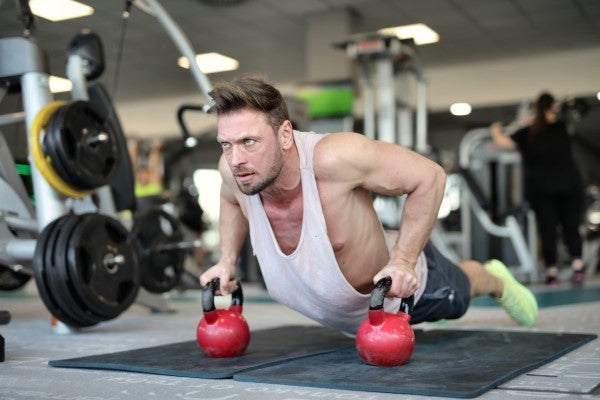
In research, articles and videos, you use the word fragile a lot when referring to men. Why do you use this term rather than vulnerable and how can men stop suppressing their fragility?
I do use the word vulnerability but it doesn’t necessarily translate as well. I use fragile to move away from toxic which is a media perpetuated term and is fundamentally dangerous. It distances the very men that we need to engage. I’m not a men’s right activist; none of us at Movember are. We are a feminist pursuit in the grand scheme of things because we believe in equality. We want men’s health to be equal to women’s health because we die, on average, six-years younger. That’s where our literal existential fragility comes into play because men are unable to view their fragility and that is what kills them earlier.
They are unable to see how unstable and uncertain their lives are and through distraction and avoidance they often miss the signs that women pay attention to. Fragility is something that I want people to embrace as beautiful, as a necessary part of our humanity and personality. If men believe themselves to be robust and unbreakable at all times, you end up with impossible standards to live up to and that is what is killing guys because if they think that they have to be this unbreakable man, they are going to, naturally fall short, and that hurts. That is what is leading to a constant suppression cycle which is not going to do us any good.
The current COVID-19 crisis is impacting everyone around the world in an unprecedented way. Men, who still see themselves as the breadwinner, may be in a position where they have lost their livelihood and their perceived role in the household. Physical distancing is also taxing on men. Tell us about Movember’s ALEC program and how it can help men cope.
We know that the provider instinct and breadwinner mentality is shifting as we get this sense of equality and women have become breadwinners. It is very clear that men still believe that a sense of achievement and self-worth are directly tied to their work. When that falls by the wayside because they take a pay-cut or forced to go on leave or fired, it’s a direct hit to their identity, which isn’t socialized in the same way for women. They may feel it, but it isn’t necessarily drilled into their mind from the age of five.
We also know from the research that compared to others, men specifically are more likely to have mental health issues when risk factors like unemployment, natural disasters and social isolation come about. Your typical depression or anxiety symptoms are more commonly seen in women. With guys, you might not see any difference in the way they go about their day to day. They may not be crying, sulking or upset and they may look exactly like they did the week before. That situational stressor that has shaken their very core is going to be something that they will find very difficult to get over. They may not even be able to express it in a way that we are able to pick up on, and that is really dangerous.
That is where Movember comes in. We are all about empowering you to call out your friend, check in on him and that will invariably help you as well. The ALEC (Ask. Listen. Encourage Action. Check In.) model is pretty simple and we also have a five a day challenge. This is about picking up the phone, making the call and pushing through that discomfort or stubbornness and when you call them by use the ALEC model. Ask questions in an open-ended way because if you ask “you alright?”, then you get, sure. That type of closed answer is what men love to give you, so don’t allow it. Give them a specific open-ended question like “How is working from home?”. They are forced to give you a description of some type. Then when you listen, you need to validate and show that you are paying attention. You need to share and model your own vulnerability as well. We will learn from each other through a reciprocal form of conversation.
You need to encourage reaction, that is what the “E” stands for. It is about what are you going to do about this and how can we work on this together whether it’s speaking to a professional if they are unwell or making sure that they have a plan to get out of the house within the confines of physical distancing. Checking in is about making sure that it’s not about “I’ll speak to you soon”, it’s about being specific, like “I’ll call you at 4pm tomorrow afternoon”. Being specific means that we understand the bounds of male conversation and it’s difficult at times to push through uncomfortable situations. We need a rule book in many ways, so that’s what we are trying to provide because there is no reason for anyone to slip through the cracks.
If men do not have a strong social network, what resources are there for them to help them through this time?
It’s very easy to fall back on further isolating themselves and feeling more disconnected from society, especially now because it feels like there is a camaraderie. If you don’t feel like you are in the middle of that, you will feel even more fringe. I think the key is, as Sheryl Sandberg says, to lean in. If anything, people are now going to be more receptive to you being a part of something now then they may have previously.
I know that there are barriers to going into a pub and meeting new people, but everyone is doing random Zoom shit now. I just dropped into a trivia night with an acquaintance and I’m lucky that I feel comfortable enough to do that. But, the parameters for conversation and for socializing are really different in this new era. Don’t fall back on what you thought you knew about how this works. Experiment, be curious and allow yourself to be a bit uncomfortable for long term gain. Reaching out to family and not having that stiff upper lip is going to be important. Admitting that things aren’t the best right now and asking for what you need is important. Don’t make people mind read.
Whenever somebody says that they don’t want to go to therapy, I always ask “Why do you want to continue like this? That’s not advantageous to you, stop punishing yourself. Reach out, connect and let’s get over it.”

You have mentioned that the best time to seek therapy is when you are well because that is when you can make the greatest impact on mental health. Why is there still a stigma around needing or even wanting therapy?
I think, thankfully, it’s changing. Therapy was seen as a feminized approach. I was the only man in my whole Master’s course. The helping professions are not a “man” thing to do. The fact that men aren’t often the professionals themselves really says a lot about what we are offering. It suggests that emotional communication, that vulnerability and all of these things that are not socialized for men are the way that therapy is going to go. All of the tropes and stereo-types about how therapy works are bullshit to be honest with you. I’ve never seen a positive, realistic depiction of therapy. What I am trying to perpetuate is the idea that it can be something that is strengthening, purely practical, motivational and get you over the hump that you are dealing with now, rather than let’s talk about your childhood.
The reason why more men aren’t doing it, is because they aren’t getting enough information about what help looks like. They need a therapy that addresses men as men and respects their masculinity and without that, many men drop out prematurely. Saying that, we are now seeing the largest uptake of therapy in our history because the system is getting better. Men are speaking more about it, and that’s the way it should be. We want guys to be like “I’ve been to my physiotherapist and he fixed my knee, incredible. I went to my psychologist and he got me over this thing. You should see him too.” I think with the new generation and the amount of young men that I see who are rugby players and massive dudes….I mean we do things differently. We still get the crux of the issue.
How can men get past the image of the strong, silent type that society has thrust on them and survive or even thrive during self-isolation?
I always stress that masculinity implies self-development and self-betterment. Strength, bravery and courage are all great in the right context. Let’s be very clear though, not adapting, not being flexible in different circumstances is not self-betterment. What masculinity and being a man means right now is being flexible, vulnerable, looking out for others. Supporting yourself and understanding your limits is also key.
Social isolation should not be a form of distraction. Don’t find anything in the world to do other than pay attention to yourself. It should be a time to slow down, reflect, to be curious, to understand where you are right now and how you got here. It’s a forced introspective moment and guys are really good at shying away from that.
I always say that the definition of mental health is can you sit in a black room, with no phone or distractions for an hour and sit with your thoughts. The vast majority of men and women can’t do that. It’s very uncomfortable to sit with your thoughts. We have a couple of weeks up our sleeve here. Sitting with your thoughts and examining where you are and what you need to shift, what’s working and what’s not is a great opportunity.
What do you think that the long-term effects of the pandemic will be?
The second wave of COVID-19 is going to be a mental health crisis. There usually isn’t a rise in suicide rates when a natural disaster happens because everyone is coming together, looking after one another and paying attention to this greater humanity. Even those that are socially isolated are finding that camaraderie because everyone is in the same boat. What happens when we return to normal where everyone is expected to return to that point where they were before and many people will be unable to do that emotionally, economically or otherwise. Then, they will feel that great sense of failure in not be able to make that return as quickly as others and that’s when the crisis hits. That’s what we need to be paying attention to.




